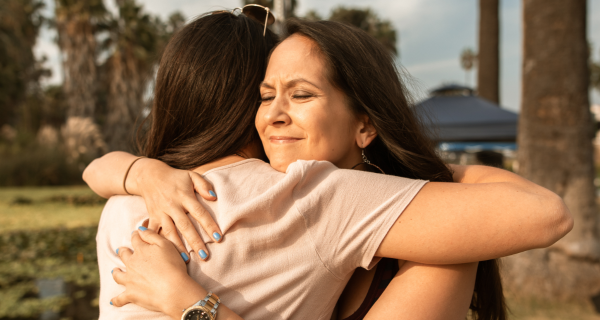September is Recovery Month, bringing awareness to the recovery journey of those affected by substance use. It’s preceded by International Overdose Awareness Day, on August 31st. During this time of the year, we honor those in recovery, remember loved ones lost, and hold ourselves accountable for keeping everyone safe and well. This time of awareness and reflection also offers opportunities to decrease stigma, challenge narratives about substance use, and provide resources and services that people need and deserve. This month offers time to simply connect with people in both grief and celebration. It is often said that the opposite of addiction is not abstinence—it’s connection.
Connection to others is a vital component of recovery and harm reduction. In this post, we explore the concept of connection through the lens of HRiA’s Helpline Champions Program.
The Need: Getting to the First Call
When our Screening and Information Specialists answer a call or message, they lay the foundation for connection; a real, live person responds to every inquiry. They take the time to understand a caller’s needs. The next step is for the specialist to offer referrals to appropriate services. At that time, the caller must take a step toward further connection by reaching out to those service providers. Each of these actions require enormous courage. We are here to help.
Many people who could benefit from helpline services are hesitant to make the initial call. One of the most powerful ways to overcome the many barriers to calling a helpline is with the encouragement and support that comes from a familiar and trusted source. This is where the Helpline Champions come in.
The Approach: The Helpline Champions Program
Helpline Champions are a group of exceptional individuals. They reach out in simple yet powerful ways within their communities to increase use of harm reduction services, substance use treatment, and recovery support services in Massachusetts and Illinois. As trusted members of communities often disproportionately impacted by the opioid epidemic, Champions are uniquely positioned to reach people wherever they are. Through efforts like street outreach, youth engagement, and programs for those who are justice-involved, the Champions create human connections, reduce stigma, and promote more equitable access to substance use services.
Beyond community and cultural connections, many of our Champions have lived and living experience of substance use and recovery. Sharing their stories can provide a vital sense of belonging, support, and hope to anyone in need, allowing them to see what is possible. Champions with lived experience know how to navigate services and supports essential for harm reduction and recovery. This knowledge is a valuable resource to others who may be actively using or seeking treatment, and for their loved ones.
Creating Connection for our Champions
What makes someone a Champion? Many Helpline Champions have been long-time advocates for people using substances or experiencing substance use disorders. The Helplines launched the Champions program to more formally acknowledge these community experts and offer a semi-structured space to connect with other advocates working toward the same goals. Champions meet monthly to share ideas, network, learn, and fill their cups. By connecting with others doing similar work, Champions can avoid duplication of services and learn about work happening in communities outside their own.
Connecting Back to the Helplines
The Champions program informs the efforts of our Helpline outreach teams and helps us improve the information in the referral systems that our Specialists use. This work augments the reach of, and value delivered by the Helpline. Champions ensure that people know the Helpline is available as a resource to connect them to a spectrum of services and supports, from harm reduction services to treatment programs and other recovery resources.
Hear from our Champions
The Helpline Champions are changing the way people and communities view recovery, providing the connection people need to remain safe regardless of where they are on their journey. Hear from a few of our amazing champions:
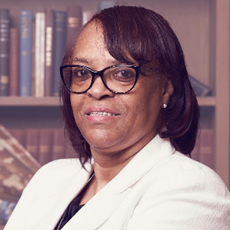
“The unique role that the Champions play in our communities is the ability to address barriers as well as provide information on a broader scale which allows for solutions. Therefore, closing the gaps ultimately allowing the communities to see the changes, which has increased collaborations.”
–Dr. Karen White (she/her), Addiction Recovery Specialist, T.E.E.C.H (Transforming, Educating, and Empowering Children and Humanity) Foundation, IL Helpline Champion.
Dr. Karen White has seen the effects of drugs firsthand – in her family and community. Hear this community leader’s inspiring story of change.
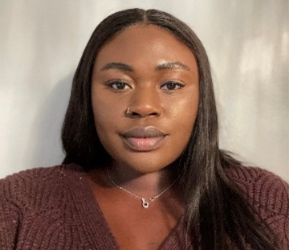
“Being a Champion has fueled my interest more in helping individuals with addictions. I am working on becoming a LADC [licensed alcohol and drug counselor] so that people of color can see folks that look like them in treatment facilities when they take that step to start their recovery journey.”
–Aishea Henry (she/her), M.A., C.R.C., Mental Health Counselor, Massachusetts Rehab Commission, Malden, MA Helpline Champion.
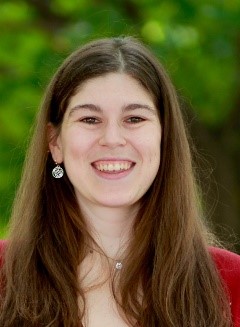
“I love being a part of a community that values and respects human dignity and human rights. Harm reduction and overdose prevention strategies are in an uphill battle right now, in terms of people understanding their benefit and necessity – so I love being a part of a community that aligns with my views and is doing something to get it more accessible and mainstream. If I can have any part of that – I am in.”
–Julia Bentley (she/her), MPH, Senior Project Coordinator, MASBIRT TTA, Clinical Addiction Research and Education Unit; MA Helpline Champion
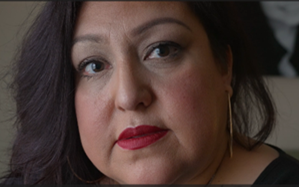
“Being a community advocate and working with individuals and families who are challenged by substances can be emotional, but Champions learn how to cope with those things, protect their mental health, and keep going. We serve a purpose, and the Champion program helps to affirm that and keep us going.”
–Aisha Esquivel (she/her), founder, #breanaland project, IL Helpline Champion.
Aisha lost her eldest daughter to substance use. She’s turning her pain into purpose. See the wonderful work that Aisha is doing to honor her daughter’s memory and prevent this from happening to others.
Get Involved
Not every state or community has a Champions program, but anyone can become a Champion in their own community! Champions come from many different backgrounds, each bringing their own unique experiences to the role. These include but are not limited to:
- People actively using substances
- People in recovery – early and long-term
- Providers/referrers
- Young adults
- Concerned and affected family members and friends
- Coalition members
- Recovery coaches
- Peer support specialists
- Retirees
- Faith leaders
If you live or work in IL or MA and would like more information, please visit the MA Champions Program or the IL Champions Program.
Another way to get involved is to become a Screening & Information Specialist for the Helplines! HRiA is always looking to expand our team of full- and part-time Specialists. Visit our Careers page for more information.
For more information on our substance use helplines, check out the resources below:
